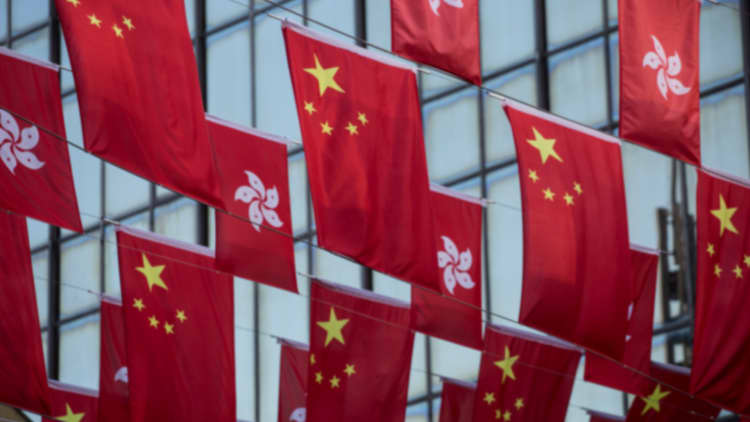The ongoing protests in Hong Kong are likely to spur China to meddle in the city's affairs more, according to one strategist that spoke to CNBC on Wednesday.
The comments follow a recent escalation in violence in the embattled city, which has been plagued by civil unrest that has now stretched on for more than five months.
"I think what the protests in recent months made, the biggest change, is I think Beijing ... will intervene in Hong Kong's affair(s) a lot more," David Cui, head of China equity strategy at Bank of America Merrill Lynch, told CNBC's "Street Signs."
"There could be very meaningful wealth and income redistribution measures," Cui said.
"The policies for the past 20 years (are) probably going to get turned upside down."David Cuihead of China equity strategy, Bank of America Merrill Lynch
The strategist said the demonstrations have shown that Beijing's previous policy with Hong Kong, which he described as "reasonably hands-off" since the city returned to China in 1997, has not worked.
"I think the old strategy was to, you know, let Hong Kong — particularly the elites — run Hong Kong," he said, to serve as a "great example for Taiwan to come back to the motherland."
Hong Kong — a former British colony returned to Chinese rule in 1997 — has been crippled by widespread demonstrations since early June. It operates as a semi-autonomous territory under the "one country, two systems" principle — a structure that grants Hong Kong citizens some degree of financial and legal independence from the mainland.

The unrest in Hong Kong has left Beijing with two options, Cui said. The first, is that China could grant the special administrative region "complete autonomy."
The second option, which Cui said is "more likely," is that Beijing will "come in and significantly (formulate) a lot of the policies, including economic policies" for the city.
"We're talking about massive change in Hong Kong policy over the next few years, we're only really at the verge … of meaningful change, a very meaningful change," Cui said. "The policies for the past 20 years (are) probably going to get turned upside down."
— CNBC's Grace Shao contributed to this report.


